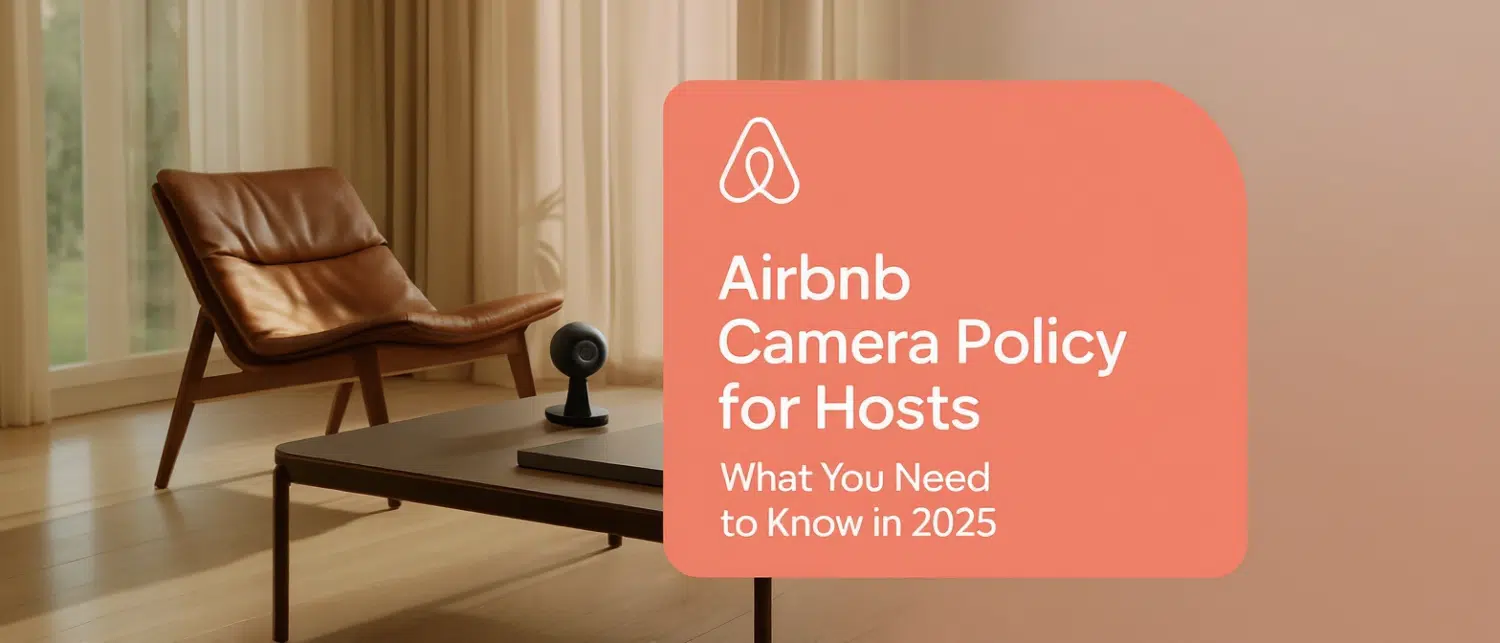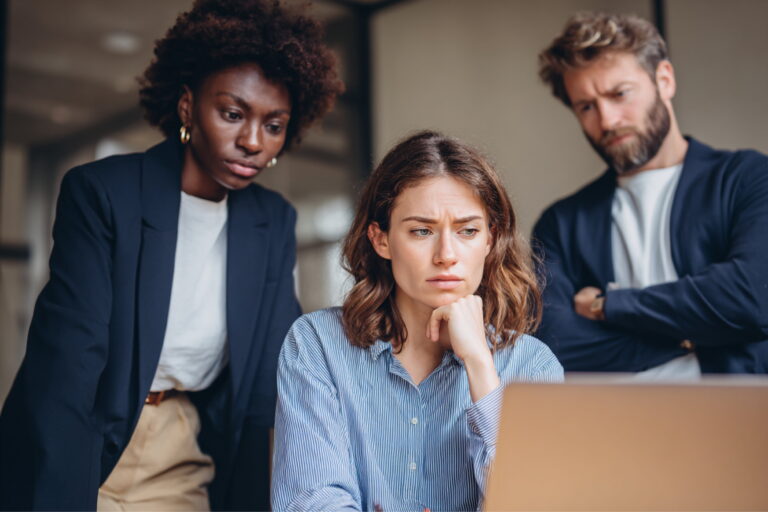As a short-term rental host, protecting your property is a top priority. Using security devices to monitor your space makes perfect sense. Cameras can deter criminal activity, help prevent unauthorized parties, and even provide evidence in case something goes wrong.
But there’s a fine line between protection and invasion of privacy, which is why Airbnb introduced a significant update to its camera policy in 2024. If you use, or are thinking about using, surveillance cameras on your property, here’s what you need to know to stay compliant, protect your listing, and build trust with your guests.
Can you have cameras in Airbnb listings?
Video surveillance offers several benefits:
- It helps hosts detect early signs of rule violations (like extra guests or parties).
- It provides peace of mind while you’re away.
- It can protect you in case of a dispute with evidence (e.g. guest misconduct or damage).
That said, guest concerns around privacy have grown in recent years, especially regarding indoor surveillance. In response, Airbnb overhauled its camera policy in 2025 to create a clearer standard and reinforce guest trust.
Airbnb security camera policy for hosts: 2025 update
As of April 30, 2024, Airbnb globally banned the use of any indoor cameras in listings. This includes visible and hidden devices, whether powered on or off — even if previously disclosed. The company explained this change in its official newsroom update, framing it as a step toward better clarity and stronger privacy for guests.
This is a significant shift in the Airbnb security camera policy, especially for hosts who previously relied on indoor video monitoring. So, can Airbnb have cameras inside anymore? The answer is no.
Under the new rules, you’re allowed to have:
- Outdoor cameras positioned toward public-facing areas (e.g. driveways, entryways)
- Indoor noise monitoring devices that do not record audio or video
You cannot use:
- Cameras inside the listing — including shared spaces like living rooms or hallways
- Any surveillance devices in bedrooms, bathrooms, or guesthouses
- Hidden cameras of any kind
This means that if you’re asking “can Airbnb have cameras in bedroom spaces, even just for safety?” The policy is very clear: absolutely not. Airbnb treats any area used for sleeping or bathing as private — and that includes open-plan layouts.
If you previously used indoor cameras for safety or insurance purposes, it’s essential to remove them from your listing entirely. Even if they’re deactivated or disconnected, their presence is no longer permitted.
Can Airbnb hosts have cameras outside, and where exactly?
So, can Airbnb have cameras outside? Yes — but with conditions.
Exterior cameras are still permitted under Airbnb rules, but you must:
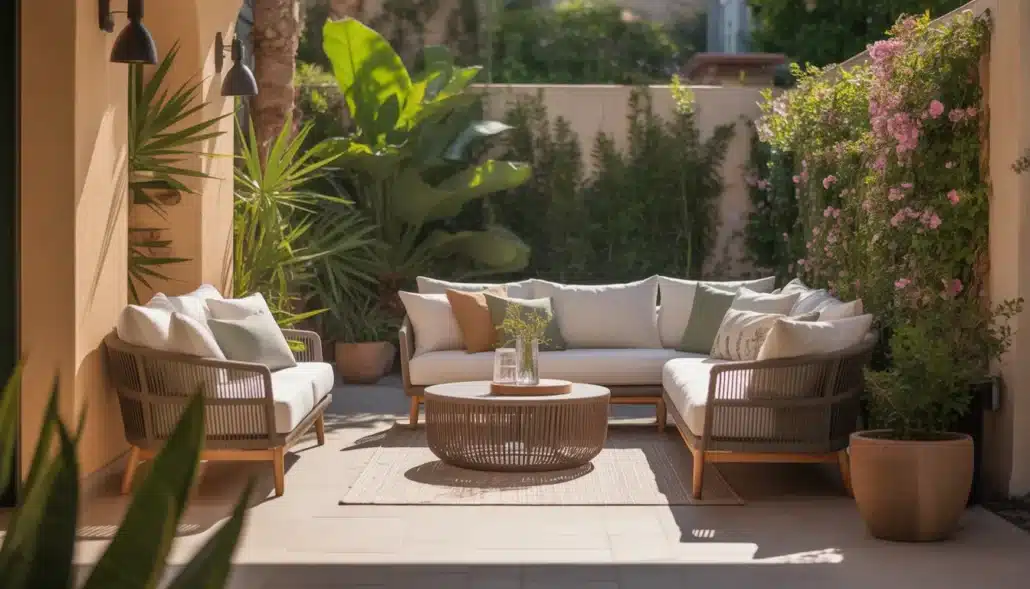
- Clearly disclose the presence, purpose, and location of every device in your listing description.
- Limit the view to shared or public-facing areas, like front doors or driveways.
- Avoid any surveillance of private outdoor spaces, such as back patios, hot tubs, or enclosed gardens.
- Disable or clearly disclose any audio functionality if local laws permit it.
Transparency is key. You might include a simple but clear line in your listing, such as: “A security camera is installed above the garage to monitor the driveway.”
This disclosure helps set expectations and avoids misunderstandings — a fundamental part of maintaining trust and compliance. If you’ve been wondering, “Are Airbnbs allowed to have cameras at all?”, the answer is yes — but only under strict and transparent guidelines.
To stay compliant, always refer to Airbnb’s official safety device guide before installing or updating your equipment.
Can you use smart devices instead of cameras in Airbnb?
If you’re looking for a privacy-respecting way to monitor your listing without crossing any boundaries, consider smart home solutions like noise monitors. Airbnb permits these tools, which are helpful for identifying parties or excessive noise, as long as they:
- Are disclosed in your listing
- Do not record conversations or video
- Are not placed in sleeping areas
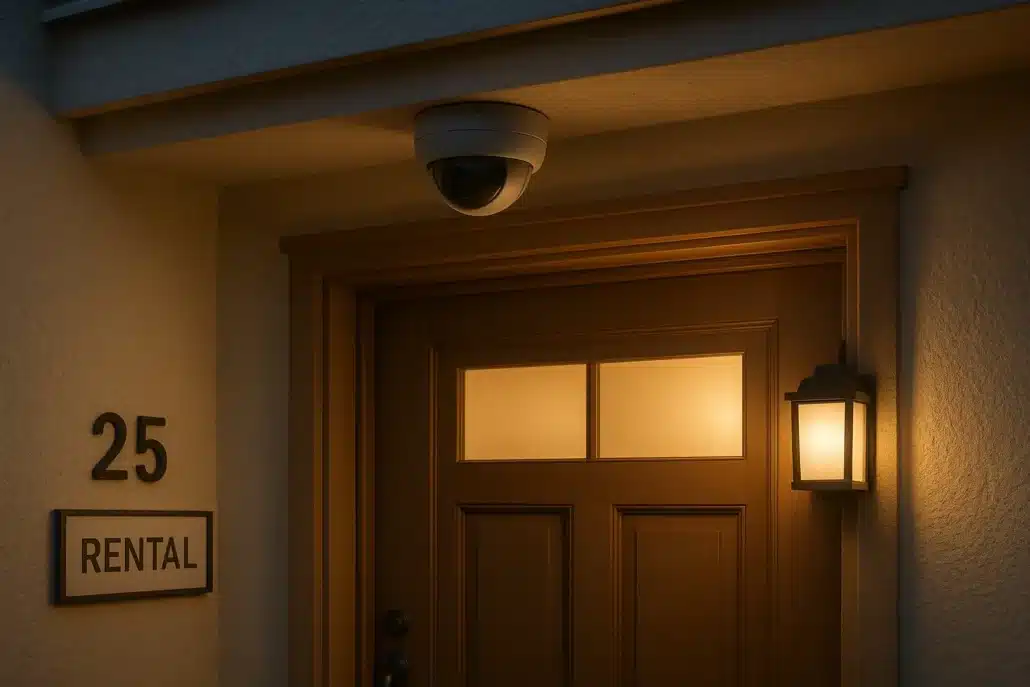
This option gives you insight without surveillance — a balance between awareness and guest privacy. If you’re managing multiple properties or hosting in a regulated area, this kind of monitoring can help you stay compliant while ensuring guests respect your space.
What are the risks of violating Airbnb’s camera policy?
Airbnb takes violations seriously. If a host fails to follow the Airbnb security camera policy, they may face:
- Listing suspension or permanent removal
- Host account deactivation
- Legal consequences, depending on your local laws
There are real-life examples worth noting:
- In California, a host’s relative was sentenced to three years in prison after secretly recording a guest in a bathroom.
- In Texas, a cabin owner served jail time for using hidden cameras to monitor guests in private moments.
- In Ireland, guests discovered a live-streaming camera disguised as a smoke detector in the living room.
These incidents underline the risks of overstepping boundaries and highlight the importance of respecting Airbnb’s rules and local law. So, if you’re still asking “is it legal to have cameras in an Airbnb?”, remember: legality depends on the jurisdiction — but Airbnb’s platform rules are firm and often stricter than the law.
How to follow Airbnb’s camera rules and protect your listings
If you’re planning to use monitoring devices at your property, here’s how to stay compliant and still keep your rental secure:
- Remove all indoor cameras, regardless of location or purpose
- Disclose all outdoor security cameras in your listing and clearly explain their placement
- Avoid monitoring any private or semi-private areas
- Opt for noise sensors to monitor disturbances instead of visual surveillance
- Review your house rules and welcome messaging to reflect any monitoring in place Setting expectations early prevents misunderstandings and supports a better guest experience
You can update your listing’s security information in the Your Space > Guest Safety section of Airbnb’s listing editor.
At the same time, Airbnb encourages hosts to explore smart, privacy-first tools that offer better control without surveillance. Two standout features from Guesty help you achieve this balance:
Guesty Locks Manager
This smart lock system generates unique access codes for each reservation and gives you real-time visibility over guest and staff entry. It helps prevent unauthorized access while improving the check-in experience — no key exchanges, no manual errors.
Guesty Damage Protection
Damage happens, but this tool lets you manage claims directly in the Guesty dashboard without involving your guests. It replaces security deposits, speeds up resolutions, and protects your income with less friction.
Together, these strategies and tools allow you to stay compliant with Airbnb’s rules, maintain a secure property, and offer a better experience for every guest.
Is it legal to have cameras in an Airbnb?
Airbnb’s platform rules are clear: indoor surveillance is banned, and outdoor cameras must be disclosed. But what about national laws? If you’re hosting guests from around the world or managing listings in different countries, it’s crucial to understand how local privacy and surveillance regulations apply to Airbnb rentals.
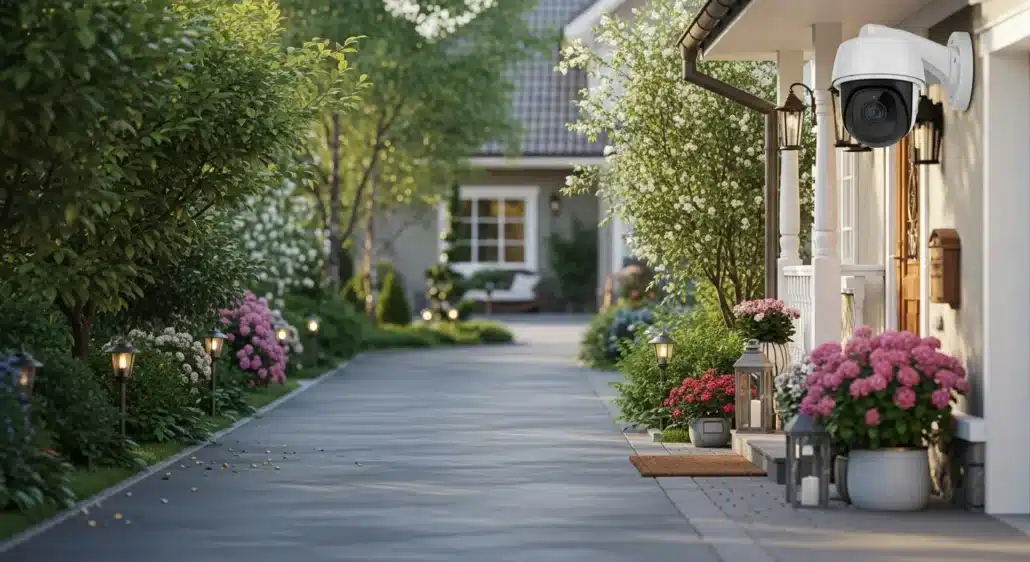
This part of the guide explores what hosts need to know about camera legality across major travel destinations. So if you’re asking, “is it legal to have cameras in an Airbnb?” — here’s the answer country by country.
United States
Title III of the Omnibus Crime Control and Safe Streets Act of 1968 protects individuals from unauthorized monitoring of their “wire, oral, or electronic communications” without consent. Similarly, the Fourth Amendment safeguards against unreasonable searches and seizures, typically by law enforcement, but it can also apply in civil cases involving unlawful recordings.
Additionally, the federal Video Voyeurism Prevention Act makes it illegal to record or photograph someone who is nude or partially nude without their knowledge when they have a reasonable expectation of privacy.
Audio recording is even more restricted — some states require consent from all parties being recorded. Secret surveillance may result in criminal charges.
Best practice for hosts: Outdoor cameras are allowed if disclosed. Indoor cameras — including in common areas — are prohibited by Airbnb and may also be illegal.
United Kingdom
UK hosts must comply with both criminal and data protection laws. Under the Voyeurism (Offences) Act 2019, secretly filming someone in a private space is a criminal offence. Additionally, if your cameras record beyond your property’s boundary, the UK GDPR and Data Protection Act 2018 require you to inform people that they’re being recorded.
Are Airbnbs allowed to have cameras in the UK? Yes, but only externally and only with proper notice. Hidden cameras indoors — especially in bedrooms or bathrooms — are strictly illegal.
France
In France, privacy is taken seriously. Article 226-1 of the French Penal Code prohibits capturing images of someone in a private space without their consent. Hosts who install hidden cameras indoors can face criminal prosecution.
Even exterior cameras must not point toward areas considered private, such as a pool or terrace used by guests. In 2023, a host in Annecy faced legal action after guests discovered a hidden bathroom camera.
Can an Airbnb have cameras inside in France? No. Even disclosed indoor cameras are not tolerated by law or platform policy.
Spain
Spanish law protects guests under data protection and criminal codes. Secretly recording people in private spaces is illegal. According to Spain’s Data Protection Agency (AEPD), installing surveillance devices inside a short-term rental — even with the intention of security — is not allowed without explicit, informed consent.
In one case, a host was fined for having a camera overlooking the apartment’s interior despite disclosing it in the listing. Spanish courts emphasized that guest consent must be freely given — not a condition of booking.
Can an Airbnb have cameras in bedroom areas in Spain? No — it is both a platform violation and a criminal offence.
Portugal
Portugal follows EU GDPR standards and also enforces domestic privacy protections. Video surveillance in vacation rentals is allowed only for external monitoring of entry points — and only when properly registered with the national Data Protection Authority.
Can an Airbnb have cameras outside in Portugal? Yes, but only in shared/common areas and with clear signage or guest disclosure. Indoor monitoring is not permitted under any condition.
Germany
Germany has some of the strictest privacy laws in Europe. Section 201a of the German Criminal Code makes it illegal to record someone in a private environment without their permission. This includes any form of visual or audio surveillance.
Even outdoor cameras that accidentally capture public space can fall under GDPR compliance rules. A German court once ruled against a homeowner whose doorbell cam recorded part of a public sidewalk.
Can you have cameras in Airbnb listings in Germany? Only if they are outdoors, registered (when required), and disclosed. Indoor recording is illegal.
Canada
In Canada, Criminal Code Section 162 defines voyeurism as illegal — covering any form of surveillance in private settings. Privacy commissioners in provinces like Ontario and British Columbia have reinforced that short-term rental guests have the same privacy rights as hotel guests.
Hosts may install outdoor cameras, but they must not point at private areas like windows or patios. Indoor surveillance, even in shared spaces, is strongly discouraged and likely unlawful.
Are Airbnbs allowed to have cameras in Canada? Not indoors. Outdoor-only, with disclosure.
Australia
Australia’s Surveillance Devices Acts vary by state, but most prohibit video or audio recording without consent in private settings. In New South Wales, for example, it’s illegal to film a person without consent if they are involved in a private act — which includes sleeping or changing.
Across the country, indoor cameras in Airbnbs are not permitted, and exterior cameras must follow disclosure requirements.
Can Airbnb have cameras inside in Australia? No. Outdoor cameras? Yes, but with caution and full disclosure.
Final thoughts for hosts
Whether you’re hosting locally or across multiple markets, it’s critical to follow both Airbnb’s platform rules and the privacy laws of your country. Across all the destinations mentioned above, hidden cameras are strictly prohibited, and indoor surveillance is banned entirely, regardless of disclosure or intent.
So, if you’re wondering, “is it legal to have cameras in an Airbnb?” — the legal landscape may vary, but Airbnb’s policy does not: indoor monitoring is not allowed.
To stay compliant and maintain guest trust, remember to:
- Use only outdoor cameras in public-facing areas
- Disclose every device clearly in your listing
- Avoid monitoring any private or semi-private zones
- Never record audio unless explicitly permitted by law and clearly communicated to guests
Privacy isn’t just a legal checkbox — it’s a foundation for building positive guest experiences, five-star reviews, and long-term success as a host.
For hosts seeking extra peace of mind without compromising on compliance, Guesty’s tools like Damage Protection and Locks Manager offer smart, privacy-first solutions to help you protect your properties — and your reputation.
FAQs
Airbnb introduced stricter rules in 2024 to enhance guest privacy and foster trust. Indoor cameras are banned, while specific outdoor cameras are allowed if disclosed.
No, indoor cameras are prohibited as of April 30, 2024. This includes monitored, unmonitored, or hidden devices in any guest-accessible space.
Yes, but only in public-facing areas like driveways or entryways. The locations and purposes of these cameras must be disclosed clearly in the listing.
Airbnb strictly prohibits audio recording unless allowed by local laws and fully disclosed to guests.
No, monitoring private outdoor spaces like backyards or pools is not allowed under Airbnb’s guidelines.
